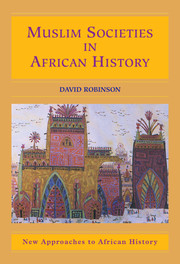INTRODUCTION
Published online by Cambridge University Press: 05 June 2012
Summary
Europeans and North Americans have had difficulty understanding Islam, even greater difficulty understanding Muslim societies and individual Muslims, and even more comprehending Muslim societies in Africa and in African history. The task is just as great for non-Western people educated in Western traditions, including many Muslims themselves. And all of these difficulties are compounded in the light of the events of September 11, 2001, their revelations and repercussions.
The difficulties may seem ironic in the light of the close relationship between Islam and the Judeo-Christian tradition, on which so much of European and world history is built. It would not be inappropriate to call that tradition by the cumbersome name of Judeo-Christian-Islamic, or Abrahamic, the name I adopt in this book. Islam honors Abraham (Ibrahim), the other prophetic figures of the Old Testament, and Jesus, and it envisions Muhammad as the last of a long tradition. Islam's emphasis on a transcendent and moral God owes much to these precedents. Jewish and Christian communities were present in Mecca and the other parts of the Arabian peninsula when Muhammad was growing up. Proximity and common tradition have encouraged understanding, but they have also led to conflict.
Conflict constitutes the first part of my answer to the difficulties of comprehension, or, to put it more usefully, the conflicts among Muslim, Christian, and Jewish societies and within each community of faith.
- Type
- Chapter
- Information
- Muslim Societies in African History , pp. xv - xxPublisher: Cambridge University PressPrint publication year: 2004



